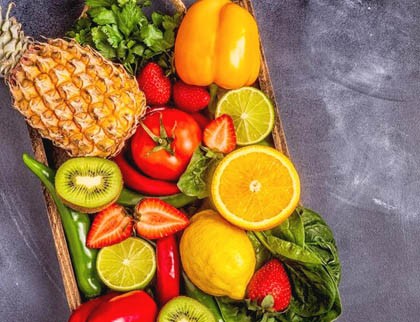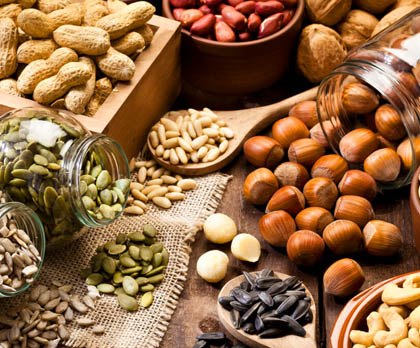Our body is most vulnerable during the winter season. The lack of sunlight and the cold weather make us prone to flu and colds. What we can do is boost our organism with vitamins to make it more resistant. The best way to do so is by the food we eat.
Of course, our diet can be combined by taking vitamins and minerals through supplements. But speaking about the winter diet there are many food products we can include in our menu. These small changes will deliver our body healthy ingredients.
Some experts say that during winter months we have to increase the intake of calories to stay warm. It’s advisable an intake of 2000 calories for women and up to 2500 calories for men.
Winter is the season we spend the most time at home. The best way to fulfill long winter days is by cooking delicious and healthy dishes. Have a look at the list of foods to include in your winter diet and conquer the kitchen with inspiration for cooking.
1. Salad and Green Vegetable Snacks
Fresh salads are a great way to intake more vitamins during cold winter days. Green veggies have an important role in the protection of the body against illnesses, flu, and colds. They boost energy levels and keep blood sugar stable.
There are many variations of tasty salads you can prepare for lunch or dinner time. You can experiment and add nuts, seeds, or different types of cheese.
2. Fruits and Vegetables Rich in Vitamin C

It protects our cells from damage and helps our body to get resistant to the flu.
As you know during winter the levels of vitamin C in our organisms are low. The best way to increase them is by eating fruits and vegetables.
Here are some of the richest fruits and vegetables in Vitamin C:
- Oranges;
- Lemons;
- Kiwi;
- Broccoli;
- Tomatoes;
- Pineapple
3. Foods Rich in Minerals
Intake of minerals is also important to keep us healthy during the winter month. Magnesium and zinc are two of the most essential minerals and the good news – we can intake them from food.
Many people think that taking supplements would do a better job. If you include these rich in minerals foods in your diet would be enough to increase the level of the minerals in your body:
- Eggs;
- Spinach;
- Cruciferous vegetables;
- Yogurt;
- Cheese
4. Soups
Warm soup is one of the best dishes you can have during winter not only if you are sick. For example, chicken soup consists of very nourishing ingredients that will boost your health levels. Moreover, our favorite soup is the tastiest way to get warm and relax.
On the other hand, many of us need to keep our bodies in shape during the winter season. Most of the soups are low-calorie levels and they keep you full for a long time. There is a variety of soup recipes you can try all winter long.
5. Ginger
This is must winter ingredient that you can use in your tea, soup, or even as a spice for your meal. Ginger is a natural product that keeps the functions of your immune system. The daily intake of ginger helps your body to reduce inflammation.
You can fight the cold and flu by boozing your organism with a combination of ginger, lemon, and honey. There are many ginger recipes like the favorite of many people – gingerbread.
6. Nuts and Seeds

If you want to lose some kilos, you have to add nuts and seeds to your diet. They are great food for breakfast because will charge with energy for the day. If you also want healthy between meals snacks, there is no better choice than nuts and seeds.
7. Eat More Fish
Fish is one of the healthiest seafood that is a source of low-fat protein. Fish is rich in omega-3 fatty acids and many minerals: potassium, magnesium, zinc, iodine, and iron. The most important thing that makes the fish must product in your winter diet is the high levels of vitamin D.
As you know this vitamin is very important for our health and usually, we intake it from the sunlight. However, during winter getting vitamin D from the sun is impossible so we have to find other sources of the vitamin.
This vitamin is extremely important for children and teens because it plays a role in building strong bones. Eating fish a few times per week will increase the vitamin D levels in our organisms.

Author: Brittany Robertson
I am a successful female blogger who has built a large following by sharing my personal experiences and insights on a wide range of… Read more

